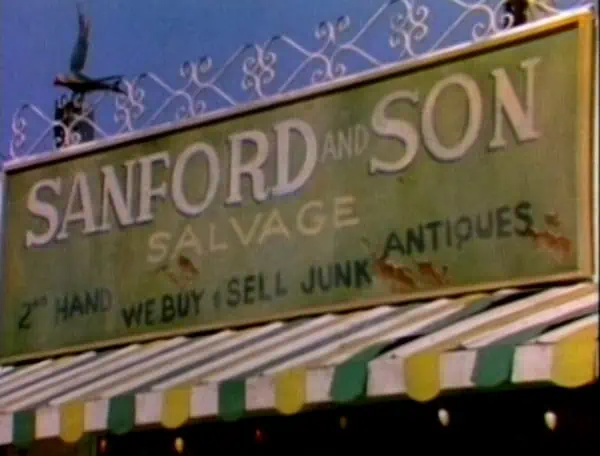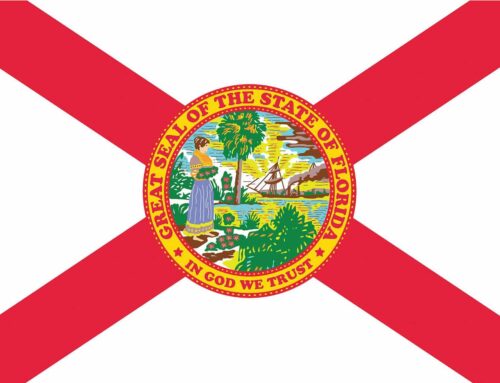Since Select Insurance Group specializes in non-standard risk car insurance, we get lots of questions from people on how to insure a car with a rebuilt or salvage title.
These are cars that have previously been totaled out by insurance companies, but that are finding new life as car hobbyists, do-it-yourself mechanics, and car flippers locate them, find the necessary parts from salvage yards and other junker vehicles, rebuild their components, get them inspected, and put them back out on the road once again.
Here’s how it works, in most states:
When a vehicle is involved in a wreck, flood, or other hazard, and fixing the vehicle would cost more than the vehicle is worth once repaired, the insurance company will “total” it, write off the loss, and send the car to the salvage yard.
Many of these cars will be stripped for parts, and eventually find themselves headed to the recycling yard to be shredded and melted down.
When this happens, the State DMV will scrap the original title, and issue a special new salvage title for the vehicle.
This indicates that it’s legal to buy and sell the vehicle (and transfer the salvage title from one entity to another). But legally, the the vehicle is not roadworthy and may not be driven on public roads.
In some states, it is illegal for anyone other than a licensed mechanic to purchase salvage title vehicles.
But car flippers, junkyard managers, and wholesalers are constantly on the lookout for unloved ugly ducklings that may have been prematurely written off. Sometimes the damage is cosmetic, or it’s much more minor or easily repaired than the original owner or insurance company thought.
These flippers will buy the cars at deep discounts, fix them up, and get them inspected by state authorities.
If the vehicle passes the state inspection, the state will then issue a rebuilt title on the car – making the car roadworthy again. In some states, they call it a “reconditioned” title, or “assembled” title. But the concept is the same.
Naturally, a car that can actually be driven is a lot more valuable than a car that can’t be driven. So as soon as the state issues a rebuilt title on a salvaged car, the car will instantly become much more valuable.
And so, assuming the car flipper didn’t spend too much money buying and repairing the salvage vehicle, they should (in theory) be able to make a tidy profit!
Even then, however, a car with a rebuilt title will probably never be as valuable as a car with a clean standard title. On average, even rebuilt cars in the best condition will have a resale value 20% to 40% lower than the same car with a clean title.
The Four Levels of Car Titles
Generally, car titles come in four types – only two of which are normally insurable:
1.) Salvage, non-repairable. These are cars that can never be brought to roadworthy status. These cars are generally stripped for parts, or they become track or demolition derby vehicles. You may be able to drive them around your farm. But these cars are essentially permanently condemned, except to live on as spare parts.
2.) Salvage. These are cars that have been totaled by insurance companies, but their condition is not necessarily permanent. A car with a salvage title can be rebuilt and driven again on the highways; A car with a salvage-non-reparable title cannot be made street legal.
3. Clean title. Also known as a “green” title. This is a normal title that has never been totaled out, and has never been branded as a salvage. Not every car with a clean title is free of serious damage. Sometimes, a car with a clean title may have been in a serious wreck. But if the car wasn’t insured, or the owner didn’t file a claim, the car may never have been totaled.
4. Rebuilt. A car with a rebuilt title was previously salvaged, but someone has repaired it and got it past a state inspection. The state has certified the car legal to drive on public thoroughfares (with the appropriate insurance).
Once a car has been branded a salvage, it can be repaired and get a rebuilt title. But it will never again have a clean, “green” title.
Insuring a Salvage or Rebuilt Title Car
Most of the time, you can’t get a standard car insurance policy on a salvage car. If you park it in your garage, you may get some coverage from your homeowners’ insurance policy if it’s damaged by a covered peril while in your home. But you won’t be able to get liability coverage, personal injury protection, or any of the other standard insurance protections you can buy for roadw0rthy cars.
Many insurers won’t touch a rebuilt title car, either, though they are technically roadworthy. Insurance on rebuilt cars is a fairly specialized market.
Even among companies that do insure rebuilt title vehicles, your insurance coverage options may be limited. You may not be able to buy collision coverage or comprehensive coverage on a rebuilt title car. And they may even cost more to insure than a standard title vehicle.
Why would this be the case? It comes down to claim underwriting: If the car is in a wreck, or if it’s stolen and stripped, it’s difficult or impossible for the claims adjuster to figure out what damage or stolen parts are the result of the new claim, and what damage or stolen parts are carryovers from the incident that caused the car to become totaled in the first place.
Also, some insurance companies don’t trust car flipper repairs. They typically have aftermarket parts installed, or may have other issues because they were just repaired to get through the inspection, not repaired in order to stay roadworthy for a long time.
Car insurance carriers therefore view rebuilt cars as more likely to get in an accident due to things like worn brakes or cheap steering components.
For these reasons, many insurance companies will only issue liability coverage on rebuilt title vehicles. If they do issue collision or full coverage, you may have to pay more than you would on a car with a standard green title.
Insuring Salvage Collector Cars.
In some cases, a car may have some unique collectors’ value. It just takes someone like you and your wallet to give the vehicle enough TLC to bring it back to roadworthy status.
If this is the case with your car, give us a call at Select Insurance Group! We know some speciality insurance carriers who understand the collector market and who can see the value in your collectible or classic junk yard beauty that others will miss.
Insuring a Car With a Rebuilt Title
Get the rebuilt title.
The seller should be able to sign over a rebuilt title. If it was your vehicle as a salvage, you’ll need to do the repairs, or pay for a mechanic to do the repairs for you. Once the repairs are done, you’ll need to bring the car with a bill of sale to your state inspection facility and have them inspect the car and hand you a rebuilt title.
Have an independent mechanic inspect your car.
Insurance companies will usually require you to have an independent mechanic sign off on the car, verifying that the car is indeed roadworthy. It’s good to have an expert look over your vehicle, regardless, just to make sure all the repairs that have to happen to make your car safe have been done.
Take photos. The insurance company may require photos from you before they will insure your vehicle – especially if they are issuing collision or full coverage insurance. You should keep these photos, too. They may come in handy in the event of a claim dispute later.
Compare multiple quotes from competing insurance companies.
Insurance pricing on rebuilt title vehicles varies substantially from one carrier to another. That’s why it’s important to get multiple quotes from different insurance carriers competing for your business.
The best way to do that? Call us. As a specialty, non-standard risk insurance broker, we know what insurance companies will look at rebuilt title and non-roadworthy vehicles, and under what circumstances. We have positive underwriting relationships with them, and we can work with you as you gather the documents and paperwork needed to get the insurance you need on your rebuilt title car.
It’s important to use an independent car insurance brokerage, rather than a captive agent. As independents, we can work with many different car insurance companies, and sign you up with whichever company gives you the best value.
A captive agent can only represent a single insurance company. And the chances that any single company is going to offer you the most competitive deal available are very slim.
So whether you have your rebuilt title in hand and you’re ready to drive the car today, or you’ve just acquired a salvage title car and you’re interested in repairing it and getting a rebuilt title so you can drive or sell it, give us a call!
We’d like to hear about your car project. And I’d like to be your agent!
See you on the road,
Steve “Mr. Insurance” Ludwig






